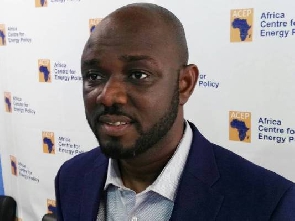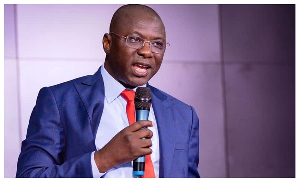The current power challenges the country is facing is largely due to failure to invest in power transmission systems after the country successfully ramped up power generation years back.
According to Benjamin Boakye who is Executive Director of the Africa Centre for Energy Policy, ACEP, after the Mahama-era power outages (2011 – 2015), Ghana had managed to scale the power generation barrier but authorities took their eyes off the issue of power transmission.
That lack of focus is what has plunged the country into the power transmission-induced blackout that is set to continue till September 2021 according to the Ghana Grid Company Limited, GRIDCo.
The energy expert, speaking on Citi TV’s Point of View program monitored by GhanaWeb, emphasized the need for government to consider the power system as a chain and to address its challenges holistically.
“If you want to be able to optimally distribute and sell power, then you have to look at the entire value chain. So what we have failed to do over the years is to convincingly address the problems in the sector. So we have one problem emerging and we rush to address it.
“That is why you saw between 2014 – 2015, all our energies were on fixing the generation problems … and after fixing that, that also brought another problem where we said we had more than we needed, which is the excess capacity we have been paying for.”
He explained how the excess capacity generated triggered the current problem that the sector is grappling with saying: “We forgot that even to eliminate the excess capacity that you had, you needed an infrastructure to be able to wheel the power from the point of generation to the consumer who will ultimately have to pay for the power.
“So we sat back and didn’t do the needed investment to be able to transmit enough power. Around 2014 when we had the problem, power consumption was barely 2,000 MW, between 1800 – 2000 MW, that was enough for the transmission system to manage.
“But over time, today we are doing about 3,100 – 3,200 MW of power. That has proven to be too much energy for the transmission system to wheel to ECG and subsequently the consumer. So you see persistent trips in the system which they call overload,” he added.
The current energy crisis has been diagnosed as a case of transmission challenges, unlike the generation hurdles that triggered the infamous power rationing of 2011 – 2016 thereabout.
Government has been under fire for failing to avert what analysts say was a looming crisis whiles the economic impact continues to affect especially small and medium enterprises.
The Ghana GRID Company have given a September deadline to end the planned outages with the Electricity Company of Ghana attracting public ire for demanding more tariffs, a move that has been rejected by the Public Utilities Regulatory Commission.
General News of Tuesday, 13 April 2021
Source: www.ghanaweb.com

















